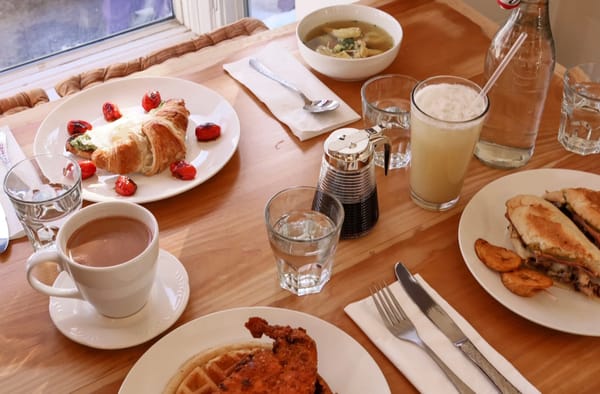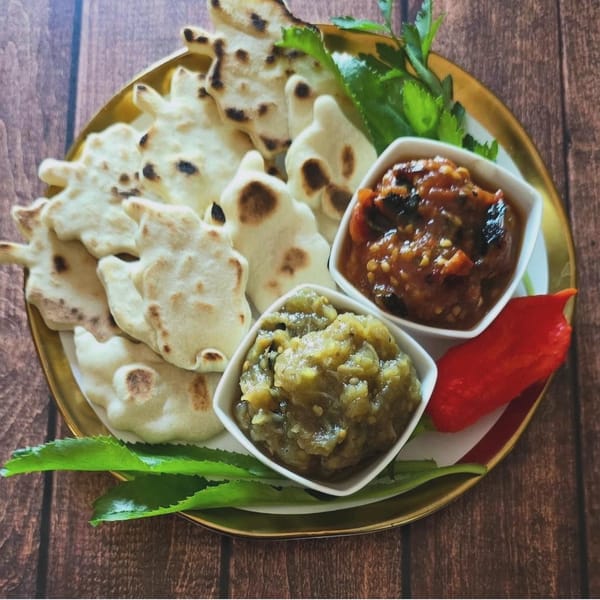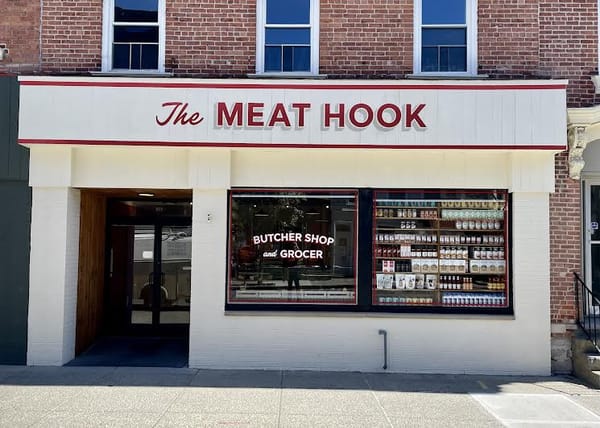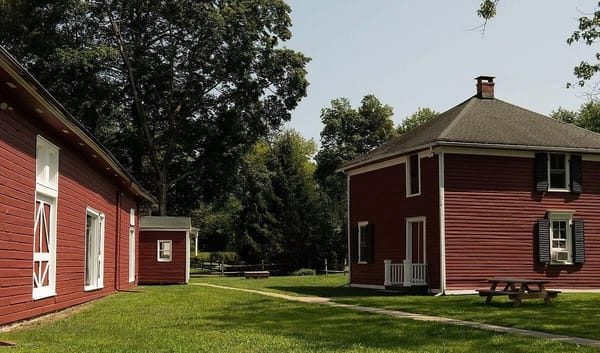
AgriCulture bloggers Peter Davies and Mark Scherzer are the owners of Turkana Farms in Germantown, NY. This week Peter writes: Thanksgiving is over and gone but not in my thoughts. I keep returning to this matter of self-sufficiency or, as it is reframed these days, the size of our footprint. In our original concept of the farm it was our decision not to practice monoculture—a farm devoted only to, say, apple growing, or to grains, such as soy and corn. Instead, we decided we would try to raise the full range of foods we would ordinarily buy from the supermarket. Rather than the industrial version of the farm that predominates today, it was our intent to return to the original concept of the small family farm. And so we began with naturally raised vegetables; progressed to sheep and egg chickens; graduated to turkeys, meat chickens, and guinea fowl; expanded to pigs and ducks; and, finally, rose to the challenge of beef cattle. From the beginning, it was our intention to raise far more of these foodstuffs than we needed for ourselves, selling off the excess to neighbors and friends.

As a result of these aims, Thanksgiving has become a celebration of our new-found self sufficiency, and an occasion to enjoy what we have grown with our own hands. As we enthusiastically tucked into our golden heritage turkey, savoring its flavor and moistness, we began to congratulate ourselves on our self sufficiency, only to be brought up short by the realization that the olive oil in the herbal emulsion I had spread beneath the skin of the bird prior to roasting was obviously not our product. We reassured ourselves by pointing out that the rosemary, thyme, and garlic in the emulsion were ours. But then, there was the nagging realization that the salt and pepper were not. Mark is more of an absolutist on such things than I, so, of course, he was more disturbed by these realizations. Forking into the creamy celeriac, potato, and carrot mash, we were at first reassured that all these ingredients were, indeed, ours. But our momentary glow was quickly dimmed by the realization that the butter and half & half were not. And then there was that nagging matter of salt and pepper. Long ago, by mutual agreement, we had crossed dairy cows off our livestock wish list, as neither of us is a milk drinker, nor do we want the confinement of twice-daily milking. But at moments such as this, I have an uneasy feeling that Mark might be harboring second thoughts. The colorful sautéed leek, parsnip, and carrot dish—all ours—seemed initially to meet our desire for self sufficiency, so there was a brief interlude of self-congratulation, but then, once again awareness dawned of that pesky olive oil, as well as the lemon juice I sprinkled on at the end, and that dratted salt and pepper. Likewise our beautiful Brussels sprouts at first gave us that special small footprint frisson until, Mark, bringing his legal mind to it, reminded me that I had used lime juice, and maybe butter, and yes, salt and pepper in the preparation. Our spirits undaunted and still hopeful, we looked forward to our salad course, which we were sure would live up to our purist expectations, with its mix of lettuces fresh from the garden, garnished with our thinly sliced Jerusalem artichokes, and shredded daikon radish. But there again to spoil it all was olive oil, as well as Dijon mustard, balsamic vinegar, and, of course, the inescapable salt and pepper.

Our last best hope was dessert, a beautiful, rich looking pumpkin pie Mark made from our own Long Island cheese pumpkin. But after we savored a few spicy bites and exchanged a few triumphant glances, the reality set in that the spelt/ buckwheat flour crust was not our farm product. We steadied ourselves by recalling that at least the lard in the crust, rendered from the back fat of our own hogs, was. And, yes, we recalled with relief, that the eggs in the pumpkin filling were laid in our own coop. But we finally had to admit that the cinnamon and other spices obviously came from elsewhere. What almost made us put our forks down, however, was the horrible realization that the whipped cream heaped on top was also not ours for reasons already explained. But we persevered nevertheless to the end, and eventually moved on, I am embarrassed to say, to a steaming cup of Colombian coffee. And so we alternate at our table between an earnest desire for self sufficiency and those lingering tastes for exotic things beyond the pale. I must confess that I am the party most guilty of these lapses in tiny-footprint orthodoxy, since my north Atlantic and Mediterranean pasts have left me with a hunger for herring, sardines and, indeed, most other ocean fish, as well as olives, Turkish delight, and feta cheese. Mark, with his more austere, puritanical proclivities, is much more able to abstain from most foods outside our farm production, though not, I would point out, his coffee. And now that I have confessed and revealed this much I must let you know in all confidence that in the description of our Thanksgiving menu, I neglected to mention that we started, not with something from our own farm but with Maine oysters on the half shell drizzled with lemon juice. It is true, and I am truly ashamed of it—but not repentant. While I believe we at Turkana Farms have reduced our footprint to that of a toe-dancing ballerina, I am not prepared to become completely airborne—not yet anyway. One of my secret fears is that one day a vein of salt will be discovered beneath the farm. If this happens, I will surely keep it a secret from Mark, because if he learns of it he will surely have me in the depths of some dark tunnel assiduously scraping crystals of salt into our shakers. —Peter DaviesFor the complete archive of past AgriCulture blogs, click here.








